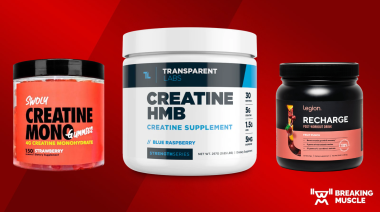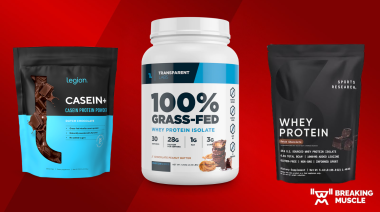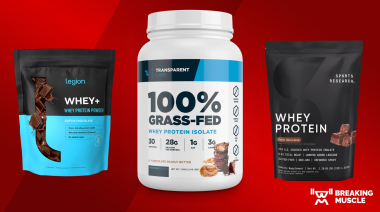When it comes to supplements, the old phrase “buyer beware” holds true. You need to know your facts before you purchase vitamins, minerals, and other supplements. In the previous article regarding the Consumer Reports summary on the downside of vitamins and supplements I addressed four issues – lack of warning labels, potential for vitamin or mineral overdose, medications in your supplements, and the fact they can’t cure any serious disease. In addition to those concerns, here are three additional things you need to know before buying supplements:
Falsely Advertised As Natural
Vitamins and supplements can be synthetically manufactured. Because the FDA does not require them to pass strenuous testing for safety and effectiveness like prescription drugs, synthetic ingredients are often added to multivitamins and botanicals. This after the FDA has strongly claimed synthetic replicas of botanicals don’t even qualify as dietary supplement ingredients. Ten manufacturers and distributors of the supposed natural stimulant called dimethylamylamine (DMAA) were warned by the FDA in April of 2012. They stated synthetic DMAA lacked safety evidence and warned that it was not a dietary ingredient at all.
If you want to take vitamins, botanicals, or other supplements, look for those with the “USP Verified” seal. This means the products meet the standards of quality, purity, and potency as established by U.S. Pharmacopeia, a non-profit watchdog.
Antioxidants May Actually Increase Cancer
Antioxidants are thought to reduce cancer risk. High doses of some antioxidant supplements may actually increase the risk of cancer. The Journal of the National Cancer Institute reported that current evidence suggests vitamins C and E have not been found to protect from cancer. Vitamin E, beta-carotene, and vitamin C don’t seem to protect against obtaining or dying from cancer. Selenium does not prevent prostate cancer. Lastly, there is no convincing evidence that beta-carotene or vitamin A, C, or E supplements prevent gastrointestinal cancers.
What about prostate cancer? A study of 35,000 healthy men taking daily vitamin E supplements showed an increase in the risk of prostate cancer. More than half of those age 60 or older take vitamin E supplements and 23 percent of this group ingest at least 400 International Units (IU) daily – way above the recommended daily dietary allowance of only 22 IU for adult men.
Calcium Supplements May Be Ineffective
How about women taking calcium supplements for bone health? Recent evidence shows these supplements may not only be ineffective, but also unsafe. German and Swiss researchers followed almost 24,000 adults for an average of eleven years and found regular calcium supplementation created an 86 percent increased heart-attack risk compared with those who didn’t supplement. Conversely, there was a statistically significant 30 percent decreased heart-attack risk for adults with a moderately high intake of calcium from their diet. The researchers surmised the supplements may cause quick spikes in blood calcium levels that are related to unsafe lipid levels, while calcium in food is likely to be absorbed more slowly.

Instead, Eat a Sensible Diet
The message: get your antioxidants and calcium from a sensible diet. For antioxidants, eat a healthy diet that includes plenty of fruit, vegetables, nuts, legumes, and whole grains. Get your calcium from dairy products, green leafy vegetables, and fish with edible bones, such as sardines. Consuming a sensible diet may preclude you from taking any “pill” at all.
Think about it. If you are currently eating a variety of fruit, vegetables, cereals, dairy, and protein, you are most likely getting the recommended amount of nutrients to help you function maximally and ward off any cancer or disease. Will you gain any additional benefit from ingesting vitamin and nutritional supplements? Let’s look at the top five selling vitamins, plus multivitamins:
- Vitamin A: Very few people in the United States are deficient in vitamin A. Animal sources such as eggs, liver, and whole milk is more easily absorbed as compared to a pill form. If you are a vegetarian, you can usually meet your needs by consuming five servings a day of dark green leafy vegetables and orange and yellow fruit.
- B vitamins:Again, most in the U.S. get plenty through their diet. Exclusions would be these groups: vegetarians who might need extra B12, the 10 to 30 percent of people over age 50 who don’t have enough stomach acid to extract B12 from food, and pregnant women who should take 400 micrograms a day of extra folic acid to safeguard against birth defects.
- Vitamin C:200 milligrams or more of vitamin C per day might improve cold symptoms in the elderly smokers and the elderly; however, it will not prevent colds. Vitamin C can also facilitate iron absorption, so to avoid hemochromatosis (iron overload) do not overdose on vitamin C.
- Vitamin D:Exposure to some midday sun during the warmer months and regular consumption of vitamin D-rich foods (fatty fish, eggs, and fortified dairy products) should be enough to eschew supplementation. Exclusions would be those who are middle-aged and older, overweight, or have darker skin.
- Vitamin E:Two studies have linked as little as 400 IU per day to a small but statistically significant increase in mortality. Vitamin E should not be taken with blood thinners as it may inhibit blood clotting.
- Multivitamins: Large clinical trials repeatedly found that multivitamins don’t improve the health of the average person. Exclusions would be these categories: women who are pregnant, breast-feeding, or trying to conceive, dieters who consume fewer than 1,200 calories a day or who eliminate an entire macronutrient (particularly carbohydrates), and those with specific medical conditions that affect digestion and food absorption.
In concluding this two-part commentary, I have established The Golden Rules of dietary supplementation and vitamins:
- Attempt to get your nutrients through regular and healthy food consumption.
- Consult your physician if you have special needs or deficiencies.
- If a product seems too good to be true, it probably is. Remember, the FDA has its hands partially tied behind its back, so buyers beware.
- There is a financial sacrifice when using vitamins and supplements. Could that money be better invested at the grocery store?
- Your health is on the line. Be smart and heed the aforementioned points.
If you missed part one, make sure to read it for the four most important things you need to know before buying any supplements.
Photos courtesy of Shutterstock.






